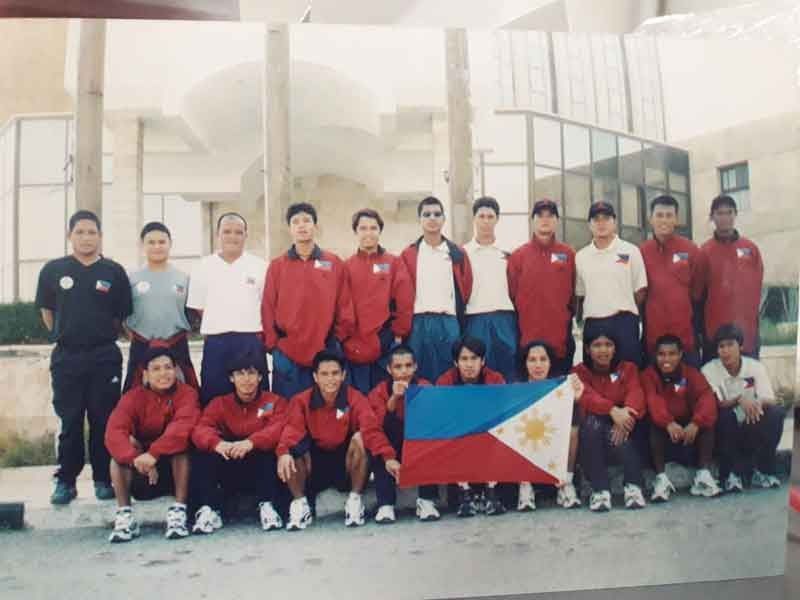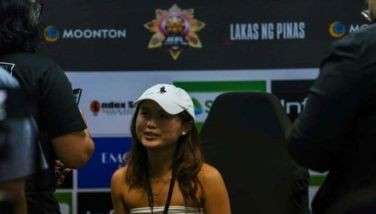The legacy of the 1999 Philippine men’s football team

MANILA, Philippines – When you look at the lineup of the 1999 Philippine men’s football team, you have to look beyond the matches they played.
The score lines aren’t flattering. Forgettable even.
During the 1999 Southeast Asian Games in Brunei, the Philippines lost to Thailand, 9-0; 4-1 to Malaysia; 3-2 to Laos; and 2-nil to Vietnam.
Come the first leg of the 2000 Olympic Qualifiers held in Hong Kong, the team got dismembered, 13-0. There was a “better” result against Nepal; a 1-nil loss to Nepal, after which Malaysia inflicted another 6-1 beating. That leg ended with a 4-1 loss to the home team.
In the second leg held in Japan, the Filipinos “played better” with a 1-0 defeat to Hong Kong, a 2-2 draw with Nepal, a 5-0 loss to Malaysia and lastly, an 11-0 hiding to the host Japanese side.
And yet, disadvantages, blowouts and all, those teams went out with their hearts full to represent the country.
“We were playing 3-5-2,” recalled Marjo Allado, who manned the midfield back then. “Our motivation then was to score even one goal against Japan. They were playing at an elite level and beat many of the top Asian teams at that time; even teams that were older and more experienced.”
That Japan team was coached by Frenchman Philippe Troussier (currently coaching Vietnam’s U-19 squad), who had a modest career as a player but a much better career as a football coach. That team had some terrific talent such as Shunsuke Nakamura, who after his stint with the Yokohama F. Marinos, played in Europe for eight seasons with clubs like Regina, Celtic and Espanyol.
That squad also featured Hidetoshi Nakata, another crafty midfielder who spent eight seasons in Europe plying his trade in Italy with Perugia, AS Roma, Parma, Bologna and Fiorentina before finishing off his 11-year pro career with the Bolton Wanderers in the English Premier League.
Added Noel Marcaida who was a goalkeeper for those national sides, “We thought that we were well-prepared. Those years, the Armed Forces teams were dominating local competition. We played them in friendlies where we either drew and or beat them.”
“So we went out and played while not being exposed to international competition, lacking information on how our opponents play and who we needed to mark. All we had was our game plan. But it wasn’t enough. What if opponents did this or that? We did not know or have any answers.”
“We only knew one player (Nakamura) but wethought we were plying 21 players and not 11.”
Those losses, however, forged and shaped the mindset of many of those players who decided to go into coaching and “teach the game the right way.”
Among those either went into coaching include Leigh Gunn, the very first Filipino born overseas to suit up for the national side (he coached in Australia for Azkalroos Australian Philippines Academy, Newington College, Southern Bulls, and the Philippine U-21 and U-23 sides that competed respectively in the 2014 Brunei Bolkiah Cup and the AFC Qualifiers in Thailand); Alvin Ocampo (with La Salle), Marjo Allado (with UST but also previously coached Global FC), Noel Marcaida (currently the Technical Director of Loyola Academy while doing coaching with goalkeepers), Joshua Fegidero (Bacolod City National High School), Dan Padernal (with Mendiola FC and National University), and Norman Fegidero (West Negros University, Pachanga, Ceres).
“The experience was great because it changed the way we approached the game,” added Padernal. “Kaya nung bumalik kami sa local competition, iba yung kumpiyansa kasi sa exposure namin.”
“It was a great experience although tinatambakan kami,” reflected Marcaida. “Yan ang nagudyok sa akin mag-coach para mabago yung approach to the coaching and national team preparation.”
And that is the legacy of those 1999-2001 squads that were under coaches Juan Cutillas, Adolfo Alicante, and Masataka Imai. The experience taught players like Alvin Ocampo to become better students of the game to the point where he played every field position except for goalkeeper. Even defender Wilson dela Cruz who his teammates describe as “playing with everything he had right up to the final whistle” influenced their approach to the game.
That is why to this day, they are still active in Philippine football and are making an impact.
For Francis Parampam, Noel Marcaida, Wilson dela Cruz, Richard Bedia, Percian Temporosa, Val Lachica, Dandi Orbeta, Ronel Gener, Alvin Ocampo, Marjo Allado, Joshua Fegidero, Dave Fegidero, Dan Padernal, Richmond Braga, Alfie Caminos, Fred Gonzalez, Leigh Gunn, Israel Ampong, Marlon Piñero, Mari Cabalfin, Billy Estrella, Raymond Tonog, Norman Fegidero, Rocky Graciano, Tats Mercado, Ziggy Tonog, Ref Cuaresma, Jezurel Tonog, Yanti Bersales, Richard Leyble and Jimmy Doña.
- Latest
- Trending























 Exclusive
Exclusive





